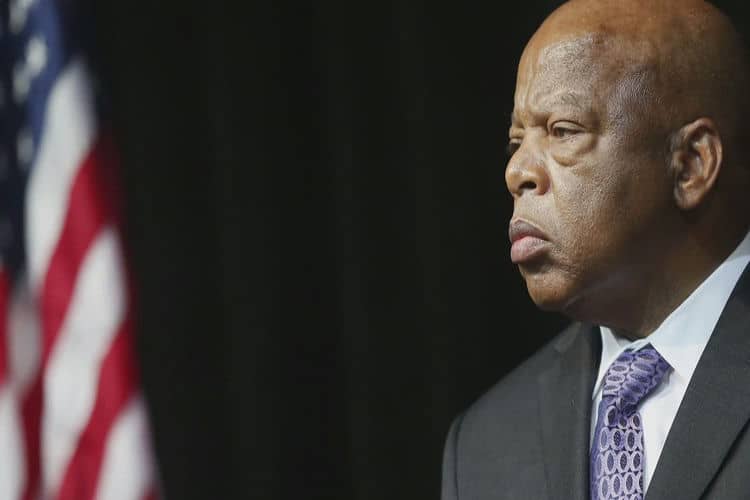After the Supreme Court gutted critical voting rights protections in 2013, states have unleashed a torrent of voter suppression schemes. The John Lewis Voting Act is designed to combat these patently discriminatory efforts.

The legislation would strengthen procedural rules governing how the Justice Department reviews changes to voting laws and redistricting maps. That has led Republicans to call it a “power grab.”
What is the John Lewis Voting Act?
The John Lewis Voting Act, named after the civil rights icon and Congressman who was brutalized by state troopers in Selma, Alabama 1965, aims to revive and expand provisions of the Voting Rights Act of 1965 that were gutted in 2013 and again this year. Specifically, the bill seeks to reinstate preclearance – the process that requires states with a history of racial discrimination in voting to submit changes in their election laws for approval by the Justice Department – and to establish an updated formula to determine which states and localities should be subject to this requirement.
The bill also aims to ensure that all Americans can vote safely and without interference by strengthening standards for early voting, voting restoration, and voter identification. It also includes provisions to reduce barriers for native American voters who face longstanding barriers to participation in the U.S. political process and to improve access to voting for the LGBTQ community.
The League of Women Voters enthusiastically backs the John Lewis Voting Act and the For the People Act, which will create critical nationwide standards for a fair democracy. It also supports efforts to address the need for additional federal funding to help communities continue to build the capacity to participate in our democracy.
What is the John Lewis Voting Act’s purpose?
A bill named for a civil rights legend would help restore the federal government’s power to oversee state voting laws and prevent discrimination.
The John Lewis Voting Act would create a new coverage formula that establishes whether states and jurisdictions with a history of discrimination need to submit changes in their election and voting laws for approval by the Justice Department before they go into effect. The bill also clarifies that any changes to election procedures or policies with the effect of diluting the voting strength of minority communities should be considered a violation of the law.
These changes include reducing the number of polling places, cutting back on early voting, requiring voters to present photo IDs to vote, and making it harder for people to cast ballots in runoff elections. These are the changes that a Republican-controlled legislature and president have pushed through, undermining the progress that many Americans have worked hard to achieve for decades.
The John Lewis Voting Act would help restore these protections to ensure all American voters have an equal say in its democracy. Congress must act to defend it and protect the right of all citizens to have a full, fair, and equal voice in our political system.
Why is the John Lewis Voting Act important?
The John Lewis Voting Rights Act would repair much of the harm caused by the Supreme Court’s recent decisions and help prevent the systematic suppression of votes in states with a history of discriminatory voting laws. It restores the preclearance requirement to ensure that voters are protected from efforts by some state and local governments to limit their right to vote.
The bill updates the formula to determine which jurisdictions must get preclearance from the Department of Justice. It would also expand the ability for these jurisdictions to “bail-in” once they demonstrate a record of not harming their citizens with discriminatory laws. The Department of Justice would be able to obtain relevant documents for voting rights investigations before taking legal action.
This legislation is necessary for a democracy that reflects all Americans. Without it, some states and localities will continue to erect barriers that prevent black, brown, native, and young people from casting their ballots and participating in the country’s political process.
What is the John Lewis Voting Act’s significance?
The John Lewis Voting Act is a vital step forward in the fight to protect and expand voting rights. The bill aims to restore protections of the 1965 Voting Rights Act, which were gutted by the Supreme Court in Shelby County v. Holder and Brnovich v. DNC. These decisions have made it harder to challenge laws that disproportionately impact minority voters.
It would require states with a history of racial discrimination in voting to obtain federal approval before instituting new election laws. It would also establish a rolling timetable for states to demonstrate that they no longer need preclearance, ensuring that the law continues to safeguard voting rights effectively.
Finally, the bill would make it easier for civil rights groups to challenge state election rules as racially discriminatory under a different section of the Voting Rights Act. It would eliminate a heightened standard that the Supreme Court created this year in its decision in Brnovich, making it more difficult to prove that a rule disproportionately affects minority voters.











